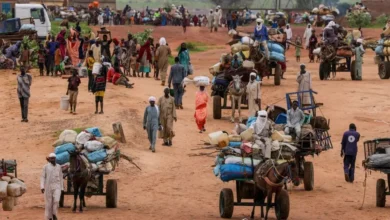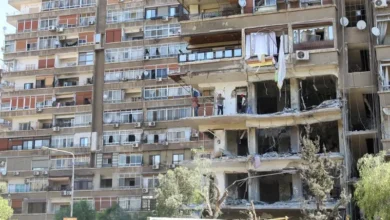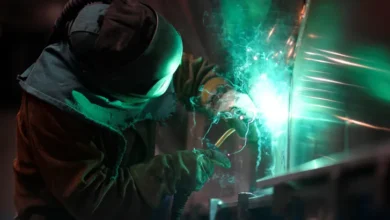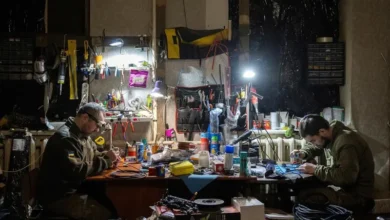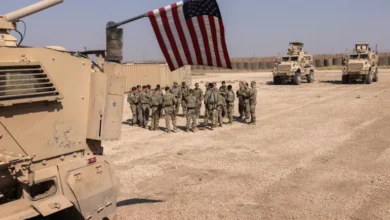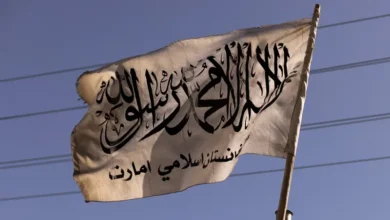What Israeli settler encroachment, intimidation look like in the West Bank
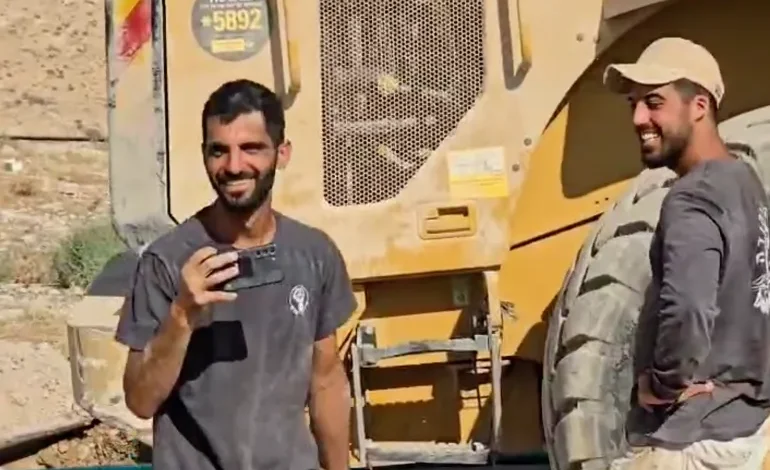
Every time Yinon Levi returns to Umm al-Khair, where videos and witness testimonies implicate him in the murder of Awdah Hathaleen, anger stirs within the community.
Seeking to prevent further arrests or violence, village leaders urge people to hide in their homes.
But Levi’s appearance leaves villagers, who have long faced home demolitions by Israeli authorities and attacks from Israeli settlers that have intensified since the war in Gaza started, afraid and seething.
Tariq Hathaleen, 31, is a community leader whose eyes are still bloodshot and glossy in grief over his best friend’s murder two months ago.
“Seeing [Levi] makes me sick,” he said with disgust. “Really, it makes me deeply sick.”
A violent settler
The residents of Umm al-Khair are a Bedouin shepherding community who were expelled from the Naqab Desert during the Nakba, when Zionist gangs ethnically cleansed hundreds of Palestinian villages to make way for the declaration of the state of Israel in 1948.
The community fled north to the South Hebron Hills, in the southern occupied West Bank, where they bought land to establish a new home across the arid land in clusters of buildings interspersed with wide grazing lands for their livestock.
In 1980, a hilltop was seized from Umm al-Khair. In its place the illegal Israeli settlement of Carmel, was built, looming over Umm al-Khair, especially its northernmost cluster, where Levi and other settlers are now focusing their attention.
Levi is a notorious Israeli settler sanctioned by the European Union and several governments for violent attacks on Palestinian communities in the South Hebron Hills, including spearheading the expulsion of Palestinians from Khirbet Zanuta village.
He runs an earthworks company that for years has facilitated setting up settler outposts – small, illegal clusters of caravans or tents settlers put on Palestinian land in hopes of getting Israeli government approval to remain. These outposts are illegal even under Israeli law.
He has also been hired by the Israeli Civil Administration to demolish Palestinian homes in Area C – the 60 percent of the West Bank under full Israeli control – where Palestinians seldom get building permits.
In February, settlers from Carmel came just south of that northernmost cluster of Umm al-Khair, where the community centre and playing fields are for the whole village, and planted an Israeli flag and olive trees there, staying close to a settler highway at first.
Later, settlers came to measure a strip running from their flag westwards, to see how many settler caravans they could fit in a line hemming in the Palestinian homes and the village community centre.
To make this feasible, they turned to the sanctioned settler, Levi, asking him to level the land on which they wanted to place outpost caravans.
Trapped
The community centre cluster of Umm al-Khair is already bisected by a settler road leading from the illegal settlement of Carmel, north of the strip they chose for caravans.
To extend the landgrab, Levi and the settlers wanted to build a shorter connection between the road and the strip of caravans, an access point closer to the gates of the illegal settlement.
But that road would run right through a patch of private Palestinian land in the village, which villagers had recently planted with olive trees.
The villagers erected a fence around their land several times to prevent settler incursions, and an Israeli court upheld their right to have it there. Still, settlers would violently demolish the fence.
The day Awdah was shot dead, July 28, an excavator owned and operated by Levi attempted to plough through this private Palestinian land.
As villagers tried to stop the excavator, with some throwing rocks, Levi came out of the machine and fired twice into the crowd of villagers, among them women and children.
One bullet struck Awdah, who filmed his own death, in the chest.
Levi was released to house arrest by the police the same day. Three days later, an Israeli judge released him from house arrest, agreeing with Levi’s claims that he was acting in self-defence.
